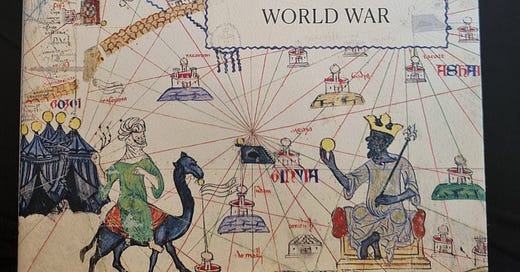Book Review: Born In Blackness By Howard French
This book will change the way you think about Africa and Africans.
Howard French wrote this book to change how people think about history, especially regarding Africa’s contribution to the modern world. Most history books often relegate Africa to being a bystander as modernization happened. In some cases, Africa has been portrayed as a victim. Howard French disagrees with both schools of thought. Instead, he makes a persuasive case that we owe much to Africans about how the modern world emerged.
Before reading this book, I was highly skeptical of Howard French’s thesis, but I am a convert after reading it. Indeed, Africa played a major role in shaping our current world order. Intentionally and unintentionally, the black race has contributed to how the world is today. And this is worth talking about.
Howard French begins his book with the story of Mansa Musa. Mansa Musa has been called the richest man in history. When he visited Egypt, he crashed the price of gold for years. For decades, Egypt will still be talking about Mansa Musa's visit. Howard French diagnoses the effect of Mansa’s visit to Egypt, the immediate failure of the trip, and the long-term effect. While Mansa Musa did not achieve his primary objective of making Mali a globally respected empire, his visit spread the story of Mali’s wealth. This changed the world forever. Mali’s gold became the envy of the world. The search for Mali's gold began in earnest.
Another major piece in French’s book is Elmina Castle in Ghana. However, Elmina is mainly remembered for its role in slavery. It held much more than that. Its history is the history of the interaction of Africa with the world. It was a shame I didn’t know of Elmina Castle until this book.
In the contest for African trade, European countries thought they were pursuing their interest alone, but in the process, they were also shaping the emergence of modernity. Since Africa was the subject and object of the contest, it is unfair that it has been relegated to just the victim in the story. Using facts and stories that have been silent for years, Howard French puts Africa at the center of modernity. He shows how the movement of Africans from Africa to Europe and the Americas shaped economies and social life and contributed to how nations interacted with each other and viewed themselves. For instance, rather than consider blacks as just slaves who were enslaved in America and set free by Abraham Lincoln, Howard French points out how black people were part of nearly every rebellion that shaped the United States, including the war that birthed the United States.
I was surprised to learn that they had nearly the same literacy level when Africa began interacting with Europe. I was surprised to learn how the Kingdom of Kongo interacted with Spain. As far back as the 1500s, Kongo was already sending students to Spain for learning. The interaction was that of peers, not superiors. Of course, all that changed over time. The kingdom of Kongo had an impressive structure and history that is worth telling in more detail. It is one of the tragedies of colonialism that prominent civilizations such as the Kongo, Benin, the Songhai, etc, have all been forgotten. They remain only sublimely alive in academia.
My biggest surprise was the stories from the Caribbean and South America. I am ashamed of the level of my ignorance about the Caribbeans. Because of this book, I have decided to add more Caribbean history to my reading list. The revolution in Haiti was spectacular, and its effect sent shock waves worldwide, causing slave masters to change how they interacted with slaves. Their success inspired black slaves in America. It is a tragedy that few people in Africa know anything about this revolution or its most prominent leader Toussaint Louverture.
French succeeded in his objective. This book will change the way you see the world. I'm sure I will come back to this again and again.
I highly recommend it.




